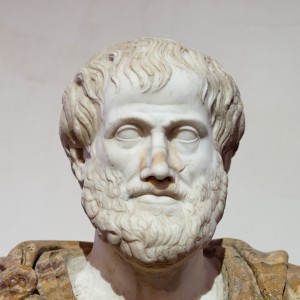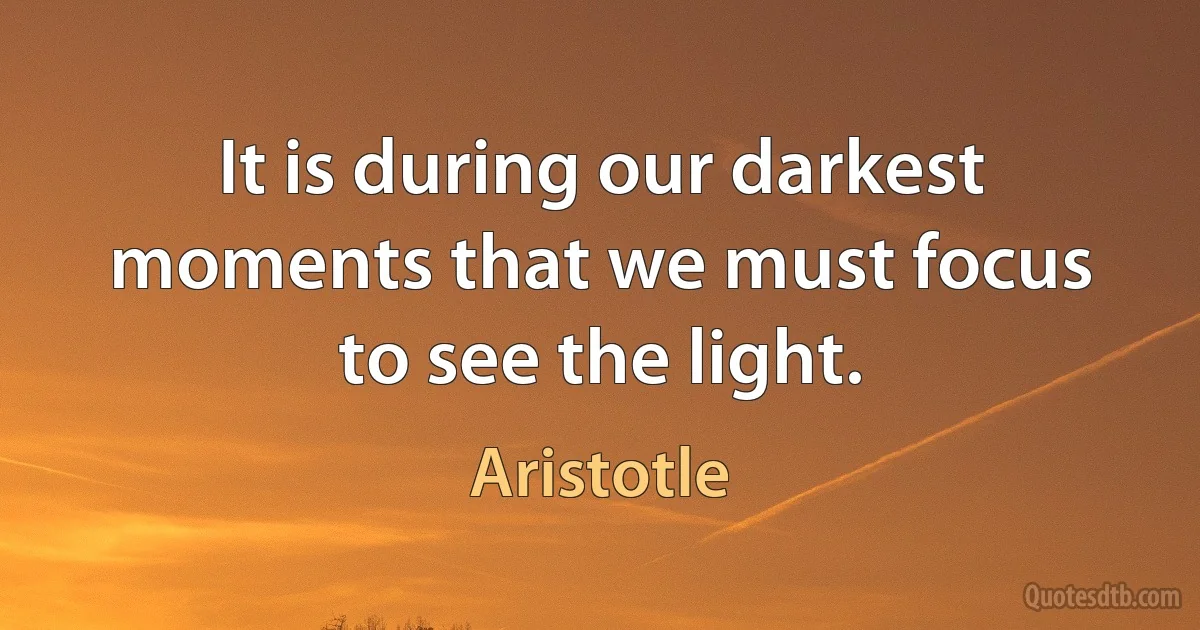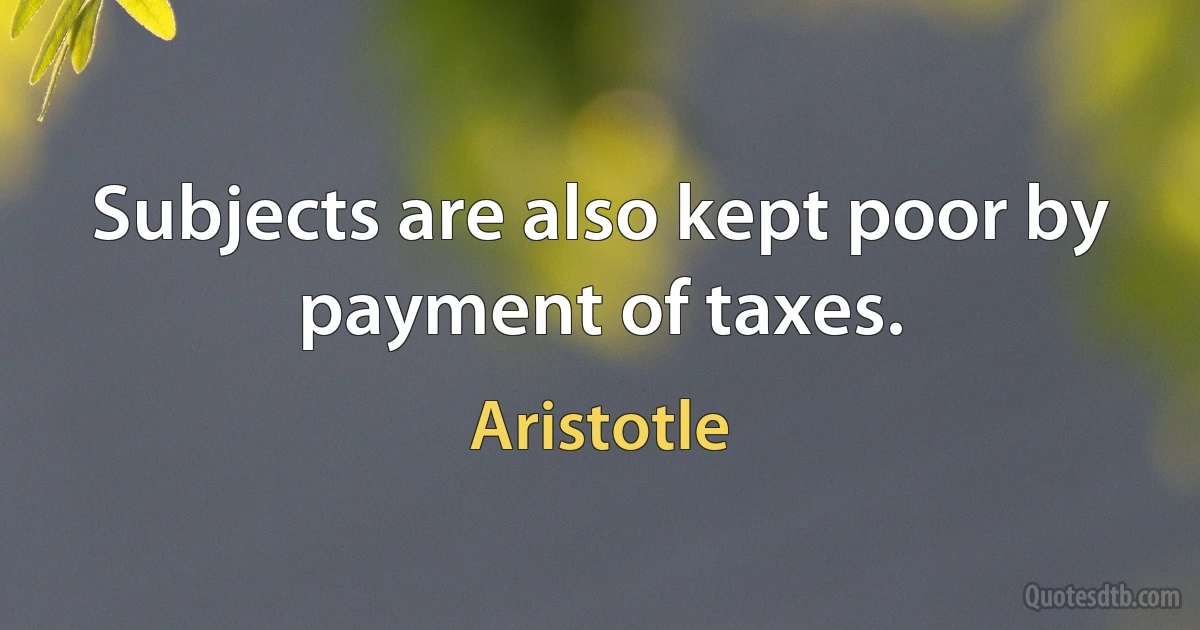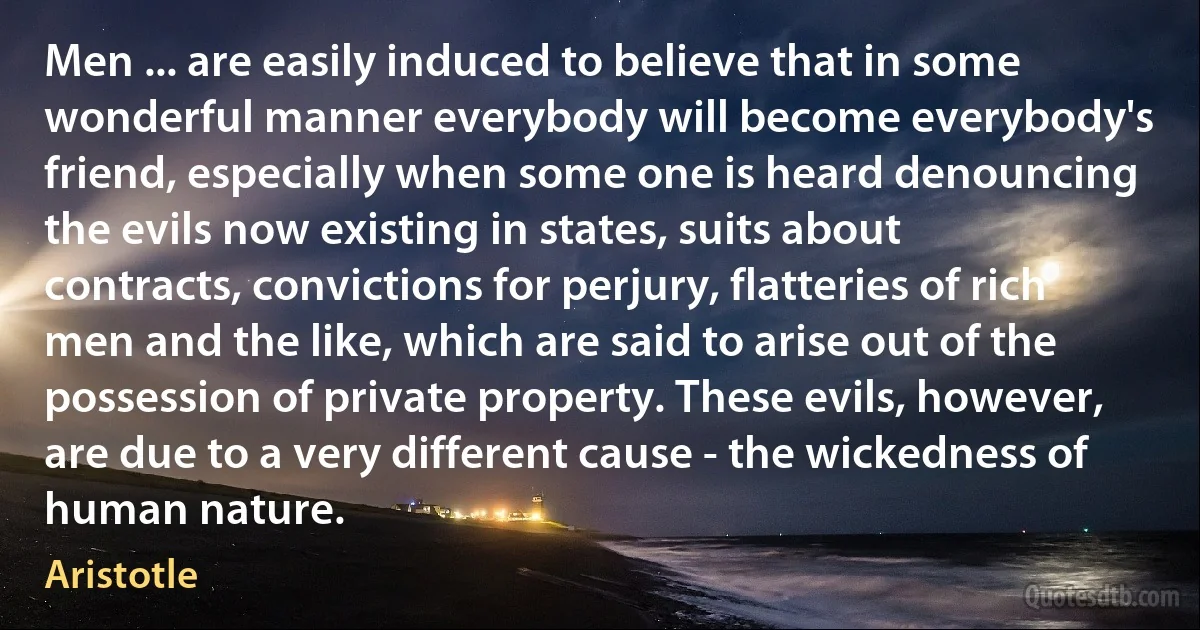Aristotle quotes - page 17
Aristotle was an ancient Greek philosopher and polymath, regarded as one of the greatest intellectual figures of Western history. His works laid the foundations for many fields, including logic, biology, ethics, and politics. He shaped scientific and philosophical thought for centuries to come. Here are 463 of his quotes:
We must act in the same way, then, in all other matters as well, that our main task may not be subordinated to minor questions. Nor must we demand the cause in all matters alike; it is enough in some cases that the fact be well established, as in the case of the first principles; the fact is the primary thing or first principle.

Aristotle
There can be no doubt that children should be taught those useful things which are really necessary, but not all things, for occupations are divided into liberal and illiberal; and to young children should be imparted only such kinds of knowledge as will be useful to them without vulgarizing them.

Aristotle
Practical life is not necessarily directed toward other people, as some think; and it is not the case that practical thoughts are only those which result from action for the sake of what ensues. On the contrary, much more practical are those mental activities and reflections which have their goal in themselves and take place for their own sake.

Aristotle
Further, the state is by nature clearly prior to the family and to the individual, since the whole is of necessity prior to the part; for example, if the whole body be destroyed, there will be no foot or hand, except in an equivocal sense, as we might speak of a stone hand; for when destroyed the hand will be no better than that. But things are defined by their working and power; and we ought not to say that they are the same when they no longer have their proper quality, but only that they have the same name.

Aristotle
All those... who discourse concerning nature, always subject a certain other nature of... elements, to the infinite... But no one of those who make the elements to be finite introduces infinity. Such, however, as make infinite elements, as Anaxagoras and Democritus, say that the infinite is continuous by contact. ...Rationally, too, do all philosophers consider the infinite as a principle; for it cannot be in vain, nor can any other power be present with it than that of a principle: for all things are either the principle, or from the principle; but of the infinite there is no principle, since otherwise it would have an end. ...it is also unbegotten and uncorruptible, as being a certain principle: for... end is the corruption of everything. ...It likewise appears to comprehend and govern all things, as those assert who do not introduce other causes beside the infinite... It would seem also that this is divine: for it is immortal and indestructible, as Anaximander says, and most of the physiologists.

Aristotle
Those who live in a cold climate and in [northern] Europe are full of spirit, but wanting in intelligence and skill; and therefore they keep their freedom, but have no political organization, and are incapable of ruling over others. Whereas the natives of Asia are intelligent and inventive, but they are wanting in spirit, and therefore they are always in a state of subjection and slavery. But the Hellenic race, which is situated between them, is likewise intermediate in character, being high-spirited and also intelligent. Hence it continues free, and is the best governed of any nation, and, if it could be formed into one state, would be able to rule the world.

Aristotle
Even trifles are most important when they concern the rulers, as was the case of old at Syracuse; for the Syracusan constitution was once changed by a love-quarrel of two young men, who were in the government. The story is that while one of them was away from home his beloved was gained over by his companion, and he to revenge himself seduced the other's wife. They then drew the members of the ruling class into their quarrel and so split all the people into portions. We learn from this story that we should be on our guard against the beginnings of such evils, and should put an end to the quarrels of chiefs and mighty men. The mistake lies in the beginning - as the proverb says - 'Well begun is half done'; so an error at the beginning, though quite small, bears the same ratio to the errors in the other parts.

Aristotle
Let us then enunciate the functions of a state and we shall easily elicit what we want: First there must be food; secondly, arts, for life requires many instruments; thirdly, there must be arms, for the members of a community have need of them, and in their own hands, too, in order to maintain authority both against disobedient subjects and against external assailants....

Aristotle
For it is owing to their wonder that men both now begin and at first began to philosophize; they wondered originally at the obvious difficulties, then advanced little by little and stated difficulties about the greater matters, e.g. about the phenomena of the moon and those of the sun and of the stars, and about the genesis of the universe. And a man who is puzzled and wonders thinks himself ignorant (whence even the lover of myth is in a sense a lover of Wisdom, for the myth is composed of wonders); therefore since they philosophized order to escape from ignorance, evidently they were pursuing science in order to know, and not for any utilitarian end.

Aristotle
If every instrument could accomplish its own work, obeying or anticipating the will of others, like the statues of Daedalus, or the tripods of Hephaestus, which, says the poet, ‘of their own accord entered the assembly of the Gods'; if, in like manner, the shuttle would weave and the plectrum touch the lyre without a hand to guide them, chief workmen would not want servants, nor masters slaves.

Aristotle
Aristotle
 Occupation: Greek Philosopher
Occupation: Greek Philosopher
Born: 384 BC
Died: 322 BC
Quotes count: 463
Wikipedia: Aristotle














